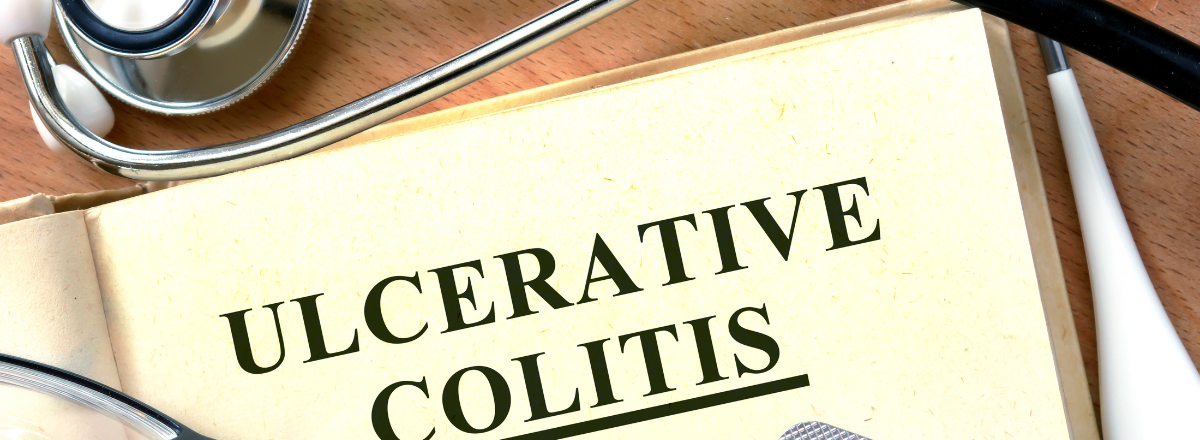If you’ve never heard of Crohn’s disease or ulcerative colitis (colitis), count yourself lucky. Crohn’s & Colitis UK (CCUK) describes these as the two main forms of inflammatory bowel disease, affecting around half a million people in the UK.
However, the charity also believes there are a lot more people suffering with these lifelong debilitating diseases, without realising what they are – either because they don’t recognise the symptoms, or are too embarrassed or scared to get help.
‘Too many people are brushing aside the most common symptoms of Crohn’s and colitis, putting them down to everyday events such as “a dodgy tummy”, “work or relationship anxiety”, or “too much partying”. Too often people are looking elsewhere to self-diagnose, and unproven remedies found online are giving false hope and delaying seeking advice and diagnosis,’ says CCUK.
That’s why, as part of Crohn’s and Colitis Awareness Week at the start of this month, CCUK, together with health experts and doctors, are telling people to ‘cut the crap, don’t delay and check for Crohn’s and colitis today’.
According to statistics from CCUK, it’s taking too long for people with the conditions to get diagnosed. It says:
‘A quarter wait more than a year for a diagnosis, and nearly half will end up in A&E at least once before they start treatment. Left unchecked for too long, Crohn’s and Colitis can be life threatening. People who experience the longest delays are four times more likely to have serious bowel complications and twice as likely to have surgery.’
ZoomDoc GP Dr Jenny Ellenbogen urges anyone suffering to talk to their GP without embarrassment.
‘Doctors have heard and seen everything and won’t be shocked by your diarrhoea, bloating or tummy troubles, believe me,’ she says. ‘Whether it’s blood in your poo or crippling constipation we need to know the details in order to get you diagnosed and treated,’ she adds.
So, it’s time to ‘cut the crap’ and, if you’re worried about symptoms, find out how to check for Crohn’s and colitis today.
What is Crohn’s and colitis?

Ulcerative colitis is a long-term condition where the colon and rectum become inflamed. Small ulcers can develop on the colon’s lining, and can bleed and produce pus.
Crohn’s and colitis are types of Inflammatory Bowel Disease (IBD) and share a lot of similar symptoms, such as:
- Diarrhoea and constipation
- Blood in your poo
- Weight loss
- Stomach ache
- Fatigue
- Flare-ups
- Dehydration
- Bloating
- Bowel incontinence and urgency
- Joint problems
In both Crohn’s and ulcerative colitis ‘parts of the gut become swollen, inflamed, and ulcerated,’ explains CCUK.
What are the differences between Crohn’s and Colitis?
‘What sets Crohn’s and Colitis apart is that Colitis only affects the large intestine, whereas Crohn’s can affect any part of the digestive system,’ says Dr Jenny.
To help get more people diagnosed earlier, CCUK recommends using its symptom checker. In just 30 seconds you’ll have a better idea of what to do and what symptoms to discuss with your GP. You can also receive a letter personalised with your symptoms to give to your GP – to help start the conversation.
Need a GP referral? Cut out your GP completely by downloading a GP Referral Letter via ZoomDoc
Treatment for Crohn’s and colitis

There’s currently no cure for Crohn’s disease. Medicines are the main treatments, but sometimes surgery may be needed.
Unfortunately there is no cure for either condition ‘but medicines and sometimes surgery can help keep you feeling well for long periods of time,’ says CCUK.
‘Sufferers are likely to have periods of good health, known as remission and times when your condition is active, known as flare-ups or relapses,’ it adds.
Dr Jenny explains that the main types of treatment for Crohn’s include:
- steroid tablets to reduce inflammation in the digestive system
- medication or injections to stop the inflammation coming back
- surgery to remove a small part of the digestive system.
With colitis, ‘treatment focuses on relieving symptoms when it flares up and then preventing symptoms from returning,’ she says.
This can be achieved by taking medicine, such as:
- aminosalicylates (ASAs)
- corticosteroids
- Immunosuppressants.
Need to see a specialist?
We can make getting a GP Referral Letter so easy with our online Medical Letters service. Simply download yours and you’ll receive a same-day referral letter for just £35 – no need to get it through your registered GP – so you can focus on booking an appointment with a consultant.
Crohn’s disease can also be a result of a B12 deficiency in the human body. Get a vitamin B12 at-home test today for as little as £49.
How to avoid flare-ups for Crohn’s and Colitis

Aim to have a healthy, balanced diet. If you think a particular food is triggering your symptoms, see if avoiding it helps.
Eating and drinking merrily over the festive season can make life a misery for anyone with any type of inflammatory bowel disease. There’s no magic way to avoid flare-ups but there are things you can do to reduce your risk, such as:
Watching what you eat – ‘Different foods affect people differently but you know yourself better than anyone,’ says Dr Jenny. ‘Don’t be afraid to eat a little more sensibly than others or to turn down something you know affects you,’ she says.
Not overdoing it – ‘Lack of energy and fatigue are common symptoms, particularly during flare-ups so make sure you factor in lots of time for rest and relaxation amongst all the festivities,’ says Dr Jenny.
Making sure you have enough medication
Doctors and pharmacies will close over the festive season so make sure you have enough medication and don’t get stuck without it when you most need it.
Need time off sick with Crohn’s or colitis?
Taking time off work when your condition flares up can be stressful enough. Next time you’re off sick for long periods of time, take away the stress of getting a sick note by using ZoomDoc’s online service.
There’s no need to make a GP appointment and then return to get your note once it’s ready. Just download yours via ZoomDoc’s Medical Letters service and you’ll get it sent to you the same day for just £45.
